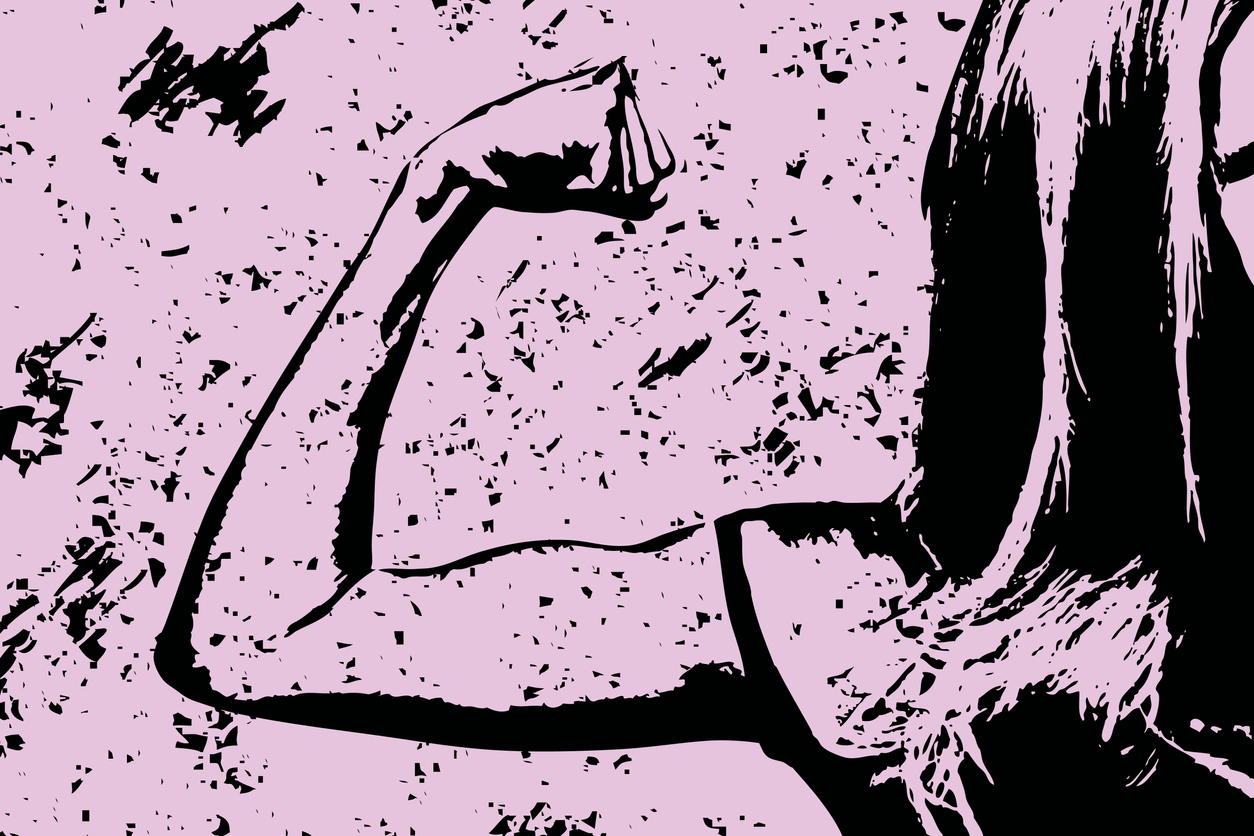The second graders were just sitting down to music when one looked over at me.
“Why do you have man arms?” he giggled. He was referring to the hair on my forearms.
“Because God made me that way,” I replied without missing a beat. That was the first time that I, at 17 years old, had ever brushed off a remark about my hair.
In retrospect it was a little cheesy, maybe something that’d be written for Jewish Veggie Tales, but I was a Hebrew school teacher at the time, after all.
Like many Jews, I have a complicated relationship with my thick, unruly hair. My arms were always easy targets for ridicule. They’re so covered in dark hair that the hirsute tops appear a few shades darker than the lily-white, fleshy undersides. Wispy but visible hairs grow on my hands and extend all the way to my knuckles.
As a child I grew acutely aware that hairy arms on girls were bad. I’m sure I was teased for it, but the statement that stood out most was one that wasn’t even directed at me. In middle school, I overheard a fellow 13-year-old telling someone that she got her arms waxed every week. This offhanded statement embedded itself in me, thick and steadfast as the hair on my arms. Shame oozed through me as I found yet another of my undesirable traits.
The coping mechanisms I’d used were varied. When I was 11 and first started growing body hair, my mom and I made up a silly song about my startling, new hairy pits. Making up songs about body hair won’t actually alter said body hair, but it’s a highly underrated way to take your insecurities less seriously.
Of course as I got older, I turned to more conventional methods like shaving, depilation, epilation, flat-ironing, tweezing, waxing, and threading. I holed up in the bathroom every Sunday night and tried to teach the hair on my head how to be straight and flat with my prized CHI flatiron. Regrettably, I plucked my eyebrows to the size of fishing hooks. When it came to my arm hair, I used my mom’s Epi-lady twice. If you’re not familiar, it looks like a white computer mouse with jagged, toothy gears at one end. Once you turn on this torture device, the gears spin with a whining grind. You plunge the gears into the thick of your arm hair and it yanks each strand out. Only once my arms were hair-free did I notice just how many freckles and moles there were, how they looked even more bizarre. This was all for the sake of making sure that nobody ever believed there was something wrong with me.
Never once had it struck me to stand up for myself.
When I told my Hebrew school student that I had hairy arms because “God made me that way,” that message wasn’t about God’s plan or power. I don’t actually believe that God was cheerfully whipping up the kind of person I’d be and said, “Gee, this one ought to have hairy arms. That will really add some character!”
But it was a significant response because I said it out loud. It was the first time I came up with something when someone remarked that I was different in a bad way. I suppose that’s to say, it’s one of the first times I ever stood up for myself. I didn’t go home and Epi-lady my arms; I calmly responded and continued using my hairy arms to teach my students.
My hair shpilkes certainly hasn’t evaporated; it’s just taken on a new form. Acceptance of my arm hair came with a combination of time, maturation, laziness, and intolerance for physical pain. That hair-maintenance must be complex and all-consuming is a myth. I’m not advocating that all people who are self-conscious about their body hair force themselves to keep it. I don’t even think it’s the superior option, necessarily. But in my case, dishing out a little bit of sass proved to work a lot better than constantly trying to alter the way I look.
I’ll say this much: My arms are hairy for some reason — genealogy, God, whatever. But whichever the reason may be, they’re my arms — and it’s my arm hair — and I won’t change them.



